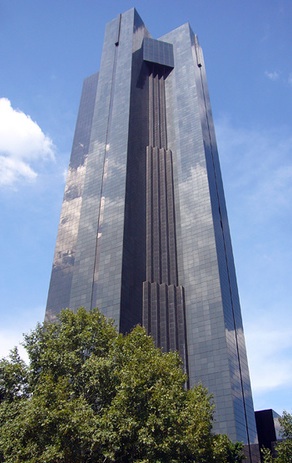
The Monetary Policy Committee (MPC) of the SA Reserve Bank left interest rates unchanged on Tuesday. The key repo rate remained at 7% while the prime rate stayed at 10,5%.
Reserve Bank governor Tito Mboweni said the MPC was of the view that the risks to the inflation outlook appeared to be fairly evenly balanced. Given the current policy stance, inflation was expected to continue moderating and return to within the inflation target range of three to six percent during the forecast period, he said.
Referring to data released earlier by Statistics SA, the governor said the year-on-year inflation rate as measured by the consumer price index (CPI) for all urban areas declined to 6,4% in August, compared with 6,7% in July.
“The main contributors to the inflation outcome were the categories of housing and utilities, and miscellaneous goods and services. Food price inflation moderated further, with food and alcoholic beverages increasing at a year-on-year rate of 6,8%, down from 8,3% in July,” Mboweni said.
The CPI inflation forecast by the Reserve Bank’s staff continued to indicate that inflation was likely to return on a sustained basis to within the inflation target range by the second quarter of 2010, he said.
Mboweni said CPI was then expected to remain within the inflation target range for the remainder of the forecast period until the end of 2011. “Compared with the previous forecast, the outlook is unchanged for 2009 and 2010, though there is a slight improvement for 2011,” he said.
The most recent study of inflation expectations undertaken on behalf of the Reserve Bank by the Bureau for Economic Research indicated that inflation expectations had improved somewhat but remained on average above the upper end of the inflation target range, Mboweni said.
“The main upside risks continue to emanate from high increases in some administered prices, particularly electricity prices, and increases in nominal unit labour costs well in excess of the current inflation rate,” the governor said.
International oil prices, which remained an upside inflation risk factor, had moderated slightly since the previous MPC meeting and appeared to have stabilised around current levels of about US$70/barrel, Mboweni said. “Domestic petrol prices increased by 36c/l in September, but the current over-recovery indicates that this increase may be offset to a large extent in October, as a result of lower product prices and the recent appreciation of the rand,” the governor said.
The exchange rate of the rand continued to provide downside pressure on inflation and had appreciated further since the previous meeting of the MPC when it was at a level of around R8,10/$. “Since the beginning of the year, the rand has appreciated by 26% against the US dollar, and by 20% on a trade-weighted basis,” Mboweni said.
The global economy appeared to be recovering in response to concerted fiscal and monetary packages which had been put in place, the governor said.
“A number of industrialised economies have experienced positive growth rates in the second quarter, while others have shown a moderation in the rate of contraction. Many forecasts for the second half of the year and for 2010 have been revised upward, but remain well below pre-crisis levels.”
However, Mboweni warned there were risks that the recovery might be short-lived should consumer demand not improve further in the industrialised economies. “While there have been some improvements in financial market conditions, more still remains to be done,” he said.
Global inflation remained relatively subdued and posed no immediate risk to the domestic inflation outlook, Mboweni added. — Sapa




